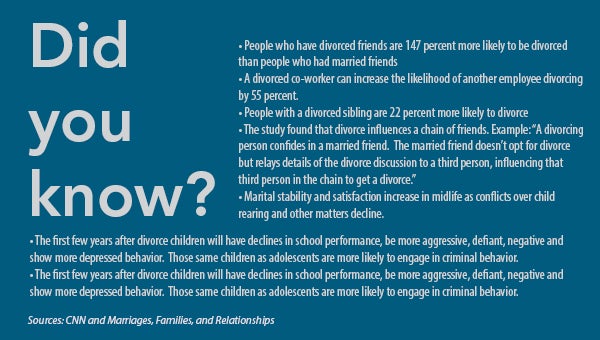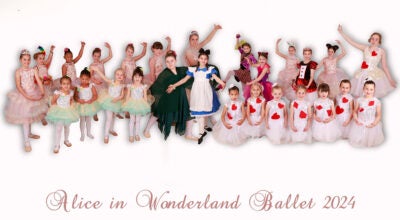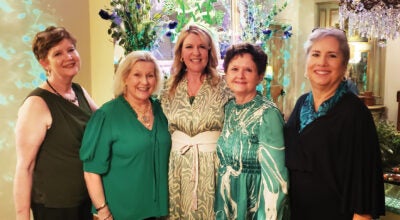Couples should cherish marriage, even in difficult times
Published 9:48 pm Saturday, September 19, 2015
Marital relationships are hard. Divorce is the answer to the marital challenge 50 percent of the time in any given year. There always seems to be a common group of factors at play when the marriage goes south: infidelity, money, kids or just plain ole “someone is not treating someone else right.”
We see people “done wrong” all the time. When this happens, the natural response is to pick sides, cast the role of victim and villain (roles that the couple tends to readily play), then defend and persecute accordingly. This is not a new script. To borrow from the maker of all things make believe, Disney, it’s a “tale as old as time.” One that we know so personally and accept so readily that maybe we miss the fact that this tale is about two very real people, not characters, in a scared precious union, with very real consequences.
Maybe it’s time to challenge this victim/villain script that we, those on the outside and inside, plug into and accept when things get hard and we are looking for a way out. Could this tale as old as time be the catalyst that keeps divorce a viable, socially acceptable option for more and more people each passing year? I can’t think of anything more socially acceptable through the ages than a victim getting justice. In this case justice comes in the form of divorce instead of the wicked witch melting.
As much as our world changes, one thing remains: there are always two people in a marriage. Those two people together create the environment that either leads to success or damnation. What makes the victim/villain characters so easy to cast and play is that, more often than not, both spouse are equally culpable, just not equally exposed, and we can always find supporting cast members to enhance our roles.
(I need to pause at this point and say that I am not in any way referring to an abusive relationship. Abuse is never OK. There is never a good reason for it and if you are being abused then you are a victim and need to seek help).
The problem that this only-in-make-believe dynamic of victim and villain creates, is that we, those looking in, only see the rock when it has eroded, when there is a noticeable difference in the relationship, when one partner has been exposed. We don’t see the small, unassuming drops of water that cause the erosion. We can’t see it because the rock is always presented in the best light for the cause. But everyone in a marriage plays a role. Every choice that is made, every “little voice” not listened to, every shoulda, coulda, woulda, every martyr, victim, rebel, star-of-your-own-show role played, every “you never, you always” is one more drip on the rock.
Sometimes the rock is already showing erosion before the marriage takes place. The warnings were not heeded. Sometimes the rock is whole for a long time. But time has a way of making us lazy when it comes to relationships. One perception is comfort. Another perception is neglect. Either way, personal responsibility is a part of the equation.
The question becomes what does this all mean, does it even matter, and what do we do? What this means is that we are a culture suffering daily from the effects of divorce. You don’t have to look very far to find visible evidence that divorce weakens and threatens children, weakens and threatens our faith, weakens and threatens our nation, weakens and threatens our purpose. Not only is it visible but secular research supports the evidence as well. So yes, it matters.
So, what do we do? First and foremost we, those in the relationship and those outside the relationship, need to take marriage seriously. We must recognize the importance not just to us but our children as well. It shouldn’t matter that it is socially acceptable. It shouldn’t matter that it is no longer “frowned upon” in your family or church. It shouldn’t matter that it is the new found “path to greener pastures” among your friends. This is about a personal commitment to making marriage, the institution and the relationship, important, significant and impactful.
Take a stand and be personally invested in your marriage. Researcher James Fowler of the University of California looked at the dynamic of what he called “Divorce Contagion” meaning that when people in your inner circle start to divorce, divorce spreads like wildfire to other members of the group. It becomes the thing to do. What would happen if the reverse were true? Take a stand for marriage. Guard it with everything you have. Create a dynamic of “Marriage Contagion.”
For the couple, I believe the answer lies in daily hard looks at self and marriage. Couples in counseling, when videotaped, are usually shocked at their own behavior not their partner’s behavior. We need to roll the footage daily, taking responsibility for our drops of water and the erosion it causes.
“Lack of communication,” “getting married for the wrong reasons,” “no investment in the marriage” and “marriage didn’t meet expectations” are always presented as the top reasons for divorce. These factors set the perfect stage for the victim and the villain. If we want our marriages to work, then we need to admit and own the behaviors, thoughts, actions and baggage that we brought into in the marriage and try to change them for the better.
We need to show all sides of the rock — to ourselves and others. We need to purposefully surround ourselves with people who hold marriage higher than fairy tales and speak truth even when it hurts. This may be in the form of counselors, older friends “who have been there,” or anyone that loves you and wants to see your marriage succeed.
We need to hold marriage higher than fairy tales. This may mean sacrificing our tendency to play the roles borne out of selfishness: damsel in distress or king of the world, to play the one of loyal sidekick who only has the other person’s best interest at heart. This may mean taking a marriage class, going on a marriage retreat, reading a book on how to be a better spouse and putting that into action, or just simply remembering why you fell in love in the first place.
There is a great line spoken by Jake Adler (Alec Baldwin) in the 2009 romantic comedy, “It’s Complicated,”…if half the couples who got divorced could get back together 10 years later, their problems would be solved.” This is a great reminder that you once passionately loved the other person but “life” got in the way. “Life” will get in the way, but “life” will pass in time as well. Don’t make a permanent mistake for a temporary problem.
Marital relationships are hard, but the original, and still prevailing, plan was for them to last. Understandably, the top reasons for divorce are not the only reasons for divorce. Sometimes you can do everything “right,” and divorce still happens. This is not about judging those who are divorced. This is about those who are married taking a daily hard look themselves, making adjustments as needed and fighting for their relationships.
Heather Emory holds a Master’s degree in Psychology and teaches in the Behavioral Science Division at Hinds Community College.






